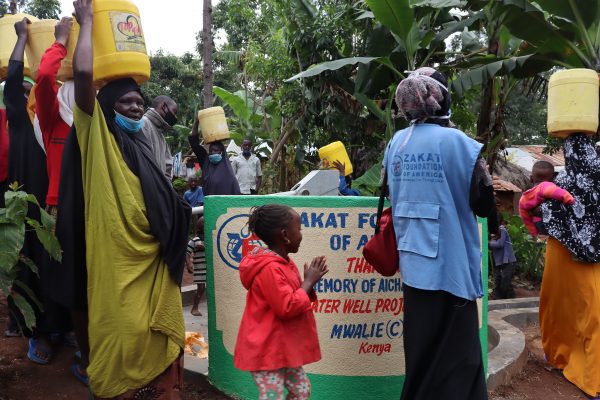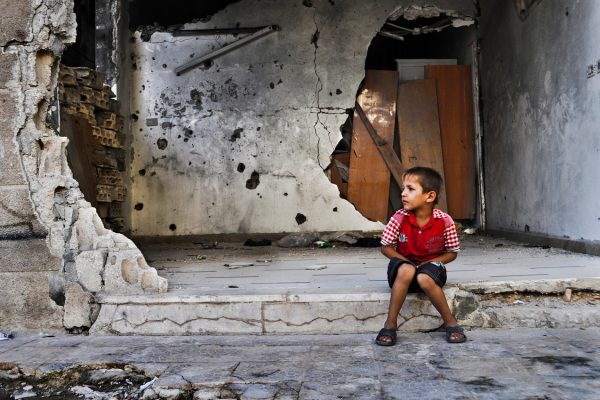Hours spent on water retrieval can be turned into hours saved through access. People are stripped of self-determination when they have no means to escape the poverty cycle that traps them and their families.
Hours spent on water retrieval can be turned into hours saved through access. People are stripped of self-determination when they have no means to escape the poverty cycle that traps them and their families.
There has been enough progress made with filtration that there should be no reason anyone on the planet lacks access to clean, safe, drinking water. There is no planetary water shortage, but the lack of accessibility to clean water — paired with the fight for renewable energy — leaves deprived communities at an increased health risk.
Water-borne diseases become more of a threat in low-income communities and slums, as global warming leads to lost water sources in some areas (flooding in others) and even less access to clean water. The global water crisis raises humanitarian concerns that come before all others. But let’s consider some of the others.
Industrial and Overall Economic Effects
It’s no secret that the largest corporations on the planet produce millions upon millions of jobs, but many of those jobs come from factories, construction, and other physically demanding work environments. This means requiring mass — industrial — amounts of people to keep production flowing and corporate profits growing.
These physically demanding jobs keep a large part of our economy and our society functioning. That’s why, economically, it makes sense to invest in the people working them, ensuring health and safety in their work lives, but also improving their quality of life outside of work.
Air pollution is higher in areas with high factory production. The water is dirtier from runoff materials the factories expel. The physical demands put strains on people’s muscles, but they also stress immune systems.
This makes laborers likelier to get sick than office-environment, corporate employees, and their illnesses are more likely to spread when they work in close proximity to other people.
This means fewer people working overall, in addition to an increased percentage of workers being sick, which leads to limited production and limited corporate financial gains. But people are more than just a means to financial gain, so this means more than just executives making less in their annual bonuses.
It means more people dying despite being in entirely preventable working and living conditions. It’s often the case — especially outside the world’s most infrastructurally developed countries — that people just need clean, running water to wash their hands more, bathe more, wash their homes and clothes more easily, and drastically reduce the likelihood of bacterial and viral infections.
“Amazing progress has been made in making clean drinking water accessible to 2.6 billion people in developing countries from 1990 to 2015,” according to WorldVision.com. “That’s an increase from 76% of the global population to 91% during that time. Yet there are still many opportunities to multiply the benefits of clean water through improved sanitation and hygiene education.“
So this goal of making sure every human on the planet has access to clean water really is attainable, and we as a society have spent decades proving it.
Rural and Remote Villages
Women and girls in areas without running water are left essentially choiceless in their daily lives. They sacrifice time with family and friends, at school, at work, and elsewhere, walking miles each day to retrieve water for their families and community members.
They make this sacrifice under the notion that they must put their survival — their humanity — above all else. They might lose hours a day to get water instead of learning concepts and skills at school that could elevate them and their families out of poverty, but they do it willingly to be able to at least survive. It’s preventable, though; it’s just not in their hands.
Hours spent on water retrieval can be turned into hours saved through access. People are stripped of self-determination when they have no means to escape the poverty cycle that traps them and their families.

So let’s come back to the humanitarian effects of the global water crisis
Organizations like Zakat Foundation of America work to mitigate these issues. It starts with building either a hand pump or a water well.
A hand pump is cheaper, and it collects less water than a well while taking more physical effort. It lasts 15 years and is constructed 40-60 feet below surface level, where water is extracted from a pool, not the source. Still, it’s installed directly in a place that doesn’t otherwise have access to clean water.
A water well costs more, and more water is gathered per extraction. It takes less physical effort to get water and lasts 30 years before re-drilling is required. It’s constructed 100-150 feet below surface level, where water is extracted from a freshwater source, not a pool.
The lifespans depend on the maintenance, weather conditions, and the material with which the source has been constructed. Zakat Foundation of America typically performs water well construction in a variety of countries in East and West Africa in areas of greatest need, and hand pumps in Southeast Asia.
As part of a collaborative process, the team partners with local organizations that work alongside individuals in their respective communities to successfully complete the construction of each water project.
This means contributing to the local economy while supporting the community on a local level. And we have to start at the local level to combat the global water crisis. It may take up to one year to complete the construction of a well and up to eight months to construct a hand pump; however, this is rare, and under extreme conditions such as political turmoil, the time frame may be prolonged.
Zakat Foundation of America is rallying to fund 100 water sources this month to honor World Water Day, coming up March 22. Many dedicate a water well or pump to a loved one in memory or honor, thereby creating a Sadaqah Jariyah — ever-flowing blessings. Donors receive photos upon completion of their water project, along with coordinates so they can one day visit themselves and see the impact of their gift.





